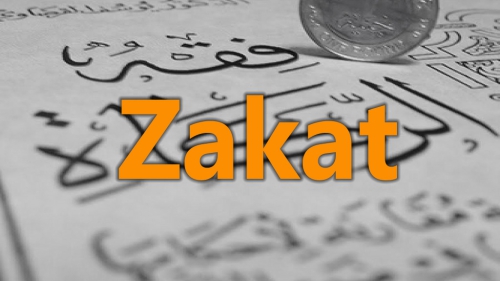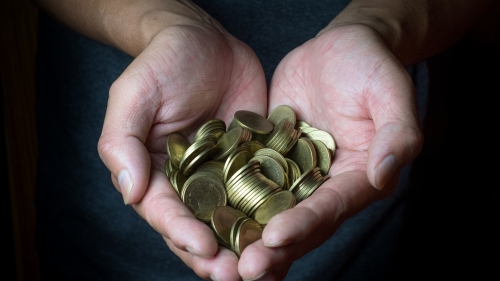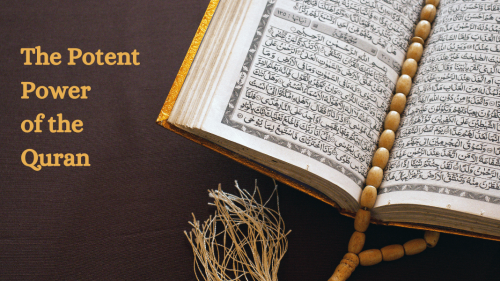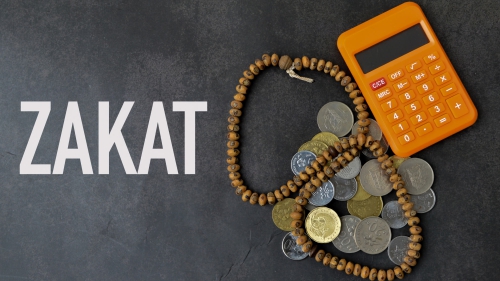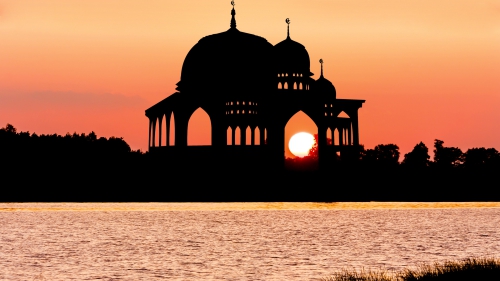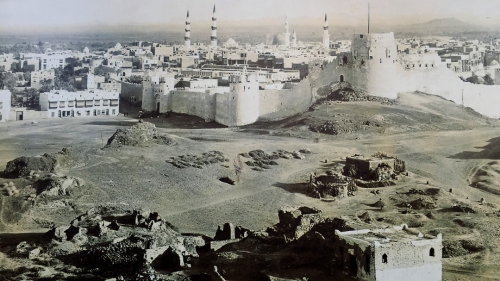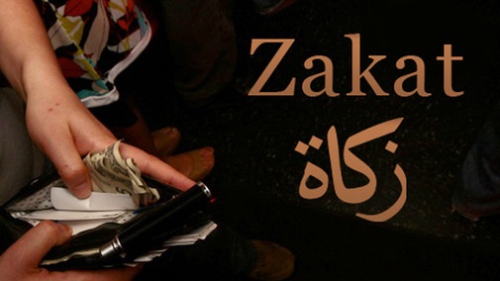Generosity to combat poverty

ISLAM IS A RELIGION THAT PROVIDES A PERMANENT foundation for its followers to construct a righteous life. Accordingly, Caliph Abu Bakr stated the following: "Those who spend their wealth (in charity), saying: 'I hope Allah will pardon me' by night and by day, in secret and in public, have their reward with their Lord; there is no fear for them, nor shall they grieve." (Q 2: 274)
It is the responsibility of every Muslim to meet his own needs in a balanced way, so that he does not spend all his wealth on personal matters, but answers his duty to share with others the blessings Allah has bestowed on him, and allots a part of his wealth for the help and assistance of the poor and needy. As Allah's Messenger said: "O Adam's son, spend your wealth. It is good for you. Do not block it. That is bad for you, spreading wealth according to need cannot be reproached. Spend first for your family and dependents. The raised hand is better than the lowered hand." (Muslim)
The Quran very clearly hints at this subject when it commands Muslims to spend for their kinsmen and the needy and requires the prevention of wasteful spending. A spendthrift wastes his wealth and indulges in foolishness. He spends his excess for personal pleasure, so that little remains for payment to others or for assistance to the needy. The command of Allah is clear in the Quran: "And render to the kindred their due rights and to the wayfarer; but squander not in the manner of a spendthrift. Verily, spendthrifts are the brothers of Satan, and Satan is to his Lord ungrateful." (Q 17: 26, 27)
We are exhorted to be mindful of the sentiments of the needy, whose feelings should not be hurt. If there is nothing that can be given to them, they should be refused softly and in a decent way -"Even if you have to turn away from them in pursuit of the mercy of your Lord, speak to them a word of easy kindness." (Q 17:28) Islam's call to its followers to spend in the cause of Allah and for charity is famous and well-known. Similarly the Islamic campaign against miserliness, greed, and narrow-mindedness is as clear as the day: "A giver of charity is near to Allah, near to humans, near to paradise, and far from hell. While a miser is far from Allah, far from humans, far from paradise, and near to hell. An uneducated giver of charity is liked more by Allah than a miserly worshipper." (Tirmizi)
There is no system in this world, nor is there any possibility of one, in which people can afford to be indifferent to each other. There will always be power and weakness, wealth and poverty, side by side in human society. It is necessary for achieving peace and satisfaction and success and security that the strong should be kind to the weak, and that the wealthy should support the poor and needy. If wealth and property are amassed as a result of capabilities and striving, then some people amass lots of riches and others attain only the bare necessities. This cannot be objected to. The question regarding misfortune and ungratefulness arises when the privileged live apart from society, when they are concerned only with meeting personal needs, pleasures, and luxuries. Allah has caused people to live together and has declared this togetherness a severe trial for them. Society provides a test of faith and an opportunity for proving worth. "We have made some of you as trials for others. Will you have patience? For Allah is One Who sees.''' (Q 25:20)
A community can only be successful when the relationship among its individuals is strong and firm. No individual should be so deprived that he faces a life of starvation and no wealthy man should be so greedy that he spends his wealth only for himself. To achieve these high objectives Islam has framed very strong laws. People's hearts are prepared by the Islamic pillars, sharia, and traditions to indulge in righteous and virtuous deeds and they have been encouraged to cooperate with each other and to help each other act righteously. Available is much explanation regarding the benefit of spending in the cause of Allah. Charity is not only supportive of the poor. Givers of charity also achieve the invaluable riches of peace and satisfaction. Their hearts are protected from the earthquakes of rancor and jealousy, and they are saved from the adverse consequences of selfishness and narrow-mindedness: "Behold you are those invited to spend in the way of Allah; but among you are some that are niggardly. Any who are niggardly are so at the expense of their own souls. But Allah is free of all wants, and it is you that are needy." (Q 47: 38)
Poverty Destroys All Charm
Poverty is a condition that causes a lot of trouble. It throws us down from the position which Allah has given us. There is always a lurking fear that poverty will deprive us of the nobleness for which Allah has declared man the best of all the creatures. It is against human nature to accept the sight of any person in dirty, torn, and tattered clothes; exposed naked in his worst faults, without footwear to cover his feet, hungry for days at a time; looking greedily at tasty and luscious food he's unable to taste. Those who see such sad and sorrowful scenes without being moved are not human, nor are they Muslim. To feel disturbed and sorry by the plight of unhappy men is common to human nature. One who is bereft of this basic quality is no more than a stone. According to one Muslim poet: "Man was created for sympathy. Otherwise there was no dearth of angels for worshiping Him."
The statement of men of faith on the matter of the imbalance of wealth is clear. Magnanimous fear of general human poverty sears the heart of all believers, automatically restating deep inside the resolve of all men to be members of one connected mankind. We instinctively know that the pain of another diminishes us all. Once the Prophet of Islam chanced upon such a scene. The tears rolled down from his eyes and he was very much perturbed. He gathered all the Muslims and delivered a very effective speech. He reminded his followers of the rights and duties of men to each other. He warned of punishment from Allah and of the consequences in the hereafter. His speech was so effective that the people who were present freely donated whatever they could. So much money was collected that the man whose condition moved the Prophet became wealthy. The changed man came to terms with his faults and became a significant contributor to society.
According to Jarir: "We were in the company of the Prophet in the morning. Some people came into his presence. They were ill-clad. Their sheets were torn in various places. Many of them belonged to the tribe of Bani Nazar. When the Prophet saw their starving condition, his face changed color. He went into his house and then came out and asked Bilal to give Adhan. He called the faithful to prayer and the Prophet led the prayer. Then he delivered a speech, and said: "'0 People! Fear your Lord who created you from a single person of like nature and from you twain scattered countless men and women. Fear Allah through Whom you demand your (rights) of one another, and remember the womb (that bore you). Verily, Allah ever watches over you.'' (Q 4:1)
"0 People who believe, fear Allah. Every person should see what he has prepared for his future." (Q 59:18)
Then the Prophet said 'Everyone should give in charity: dinar, dirham, cloth, dates, wheat, etc' He went on till he urged 'Give, even if it is a stone of a date.'"
The narrator says that after this a man from Ansar brought a bag so full that it was slipping from his hand and it fell to the ground before he reached the Prophet. Other people also brought things to be given in charity, till there were two big heaps of edibles and clothes. At that time he saw the face of the Prophet glow with joy, as if it were gold. Then he said: "Anyone who follows the good sunna in Islam will get his reward (sawab); then also the reward of others acting on it. And anyone who designs a bad practice into Islam will get the punishment for it and also the punishment of all those who act on it."
These eloquent words invite us to compete in matters of righteousness and in the performing of virtuous deeds, heroic acts, and commitment to social welfare and humanitarian projects. On the other hand, the Prophet's words warn those who casually encourage the development of bad practices in society. Their warning is to look beyond the moment to the problems and complications these inane acts give rise to. They are further exhorted to note and weigh the seeds of evil they are leaving with their successors, who will be left to face all the ill consequences that are generated.
Charity
It is human nature to love wealth and to be greedy to get it. For this a man travels long distances and bears various kinds of troubles. The disease of selfishness and a tendency of giving preference to his own benefits over all other things are there in a man from the first day. He thinks about himself more and cares little for others. If he is given the entire wealth of the earth, nay, even if he gets the treasures of the blessings of his Lord, he will not be prepared to spend from it willingly, and different kinds of diseases of selfishness will tie his hands.
"Say (O Prophet!) If you get the treasures of my Lord in your possession, you would have blocked it from fear of its being spent. Verily, man is narrow minded." (Q 17: 100)
Islam has considered this kind of thinking and mentality as very cheap and mean, and it is to be resisted vehemently. It is to be counted with alertness and cleverness. Islam has very clearly stated that only that man can be successful in achieving the rewards in this and the next world who removes the motivations of narrow-mindedness and niggardliness and nourishes charity and generosity.
"So fear Allah as much as you can ; listen and obey; and spend in charity for the benefit of your own souls; and those saved from the covetousness of their own souls, they are the ones that achieve prosperity." (Q 64: 16)
Heaps of silver and gold from which the rights of poor and needy persons are not met become the causes of their owner's punishment and disgrace in this world and in the next. Such wealth is like the snakes which are hiding in their holes and are waiting to bite men. Islam has clarified that this wealth will be turned into living snakes on the Doomsday, and this snake will be chasing for attacking and biting its owner.
"The wealthy man who has not paid the rights of others from his wealth, his treasure will become a snake on the Doomsday, which will chase him with open mouth, then a voice will be heard*: 'Catch hold of your wealth which you had concealed, and I am unconcerned with thin.' When he will see that there is no escape, he will put his hand in its mouth, and it will bite him as a bull eats the grassy." (Bukhari)
Islam explains to the man that his love for wealth leads him near destruction, and that if he ponders over the reality of wealth and its consequences he will realize that charity is better than selfishness and that gift is nobler than miserliness.
It is strange that what a man leaves for others, he expresses harshness in that. If he will not use his wealth for improving his own economic conditions and for the welfare in the Hereafter, then from what else will he try to derive benefit?
The holy Prophet disclosed this reality, when he said: "Who is there among you that likes the wealth of his inheritor more than his own wealth?" The Companions replied: "O Messenger of Allah! We like our own wealth." The Prophet then said "The wealth of each one of you is what he has sent to God, and the wealth of the inheritor is what each one of you leaves behind." (Bukhari)
Inspite of this when the Prophet declared that he would collect the Zakat, he treated leniently and with softness the greed of men to hoard money and tackled them with great dexterity. He said: "Soon to you will come the collectors of Zakat. When they come, welcome them. Give them full liberty to collect whatever they want. If they act justly, they will do good to themselves. And if they are unjust, its evil will be on them. Keep them pleased, for the payment of your zakat will be completed by their pleasure, and the. should pray in your favor." (Abu Daud)
If a man is successful in removing the obstructions that miserliness and narrow-mindedness place in the path of righteous feelings, then it is a perfect achievement in the eyes of Islam. Ordinarily a man is hopeful about life, and his relationship with it is strong and firm, provided he is healthy and energetic and courageous about future. At such a time man spends his money moderately and he is always thinking of increasing his wealth, so that he may be reassured about his future and that of his children. If in these circumstances a man controls all the factors, and keeps his hands open, spends his money with an open heart and generosity, he neither worries about poverty or 'want, nor is he afraid about his ruin, then such a man performs the act of great good.
One man went to the Prophet and asked him: "O Messenger of Allah! What charity is the best reward-winning ?" The Prophet said: "That you give in charity, although you may be healthy and in need of money ; you may be afraid of getting poor so also you may be hopeful of getting wealth and being free from want. Let it not happen that you should go on postponing to give in charity, till your last breath, then you start making a will to give this much in charity to this man and that much to that man." (Bukhari)
"If you give charity openly even so it is good, but if you give it secretly to the needy, it is much better for you, and He will remove some of your deeds. And Allah is well aware of what you do." (Q 2: 271)
"If you loan to Allah a beautiful loan, He will double it to your (credit), and He will grant forgiveness ;for Allah is most Ready to appreciate (service), Most Forbearing, - Knower of what is hidden and what is open, Exalted in Might, Full of "Wisdom.''(Q 64:17-18)
When a man commits a sin and lie realizes that there has arisen distance between him and his Lord, then the thing that brings back cleanness, light and gets him a shelter under the benevolence and pleasure of his Lord is spending his most loved wealth and property in the cause of Allah, and he should gladden the hearts of the poor and the needy with its help, and should try to achieve rank before the Most Gracious Being.
Zakat, charity and other generous acts are of great importance in this life and in the Hereafter. On its basis alone a Muslim's relationship with his religion either becomes strong or weak. There is nothing more depriving than miserliness in paying others' dues and nursing misgivings against God. And there is nothing more helpful for success and glory than confidence in Allah's favors and a man's charity and generosity.
Allah's Messenger has said : "The acts of righteousness and virtue save a man from the adverse consequences of the wicked acts. The charity that is given unobtrusively cools down Allah's anger, and kindness to kinsmen increases a man's age. "(Tibrani) Another tradition has it: "Purify your wealth by giving zakat. Arrange for the treatment of your sick by giving charity, and Fight the waves of adversity by praying to God meekly and humbly." (Abu Daud)
The heaviest blow to Satan, the most successful method to [counter his tricks and the greatest shield against his distrusts is that man should give his wealth in charity, and spend his money in the cause of Allah. For this reason the devil inspires man to be weak and narrow-minded so that he may be prevented from giving generously and be involved in the entanglements of the material world: "The devil threatens you with poverty and bids you to lewd conduct Allah promises you His forgiveness and bounties. And Allah is Ail-Embracing, All-Knowing. (2: 268)
It is mentioned in the hadith "When a man decides to give something in charity, a group of seventy devils clings to him and tries to put him off it." (Ahmed)
When a man distributes his salary or allots it to different items of expenditure, be allots its major portion to such items as are perishable. He thinks of them as if they are the dues from which there is no escape. Islam has informed that a man may consider the expenditure on his food and medicine as on perishable items, but the wealth which he spends in the cause of Allah is such that never perishes. Um ul Momineen Ayesha narrates that they slaughtered a goat, and the Prophet asked : "How much of its flesh has remained ?""They replied : "Nothing remained except the shoulder piece." The Prophet said : "Everything has remained except the shoulder piece." (Tirmizi) This hadith is in accord with these words of Allah: "Whatever is with you is perishable, and whatever is with Allah is permanent." (Q 16: 96)
In a hadith-Qudsi it is written :"0 son of Adam ! Spend your treasure in the cause of Allah. With me there is no fear of its getting burnt, drowned or stolen. In its place whatever you would need, I will give it to you." (Baihaqi)
Sometimes a thought enters the mind that charity reduces the wealth, and brings a man nearer to poverty, and takes away from him that peace and assurance that is available to him under the shadow of wealth. Such a thought is generated by Satan, who puts it intothe minds of the hoarders of low and mean nature. The fact is that charity is the means of nourishment and development. Donation of wealth is a long and wide road. A man who spends the gifts of Allah generously with his two hands, his hands are always full with the gifts of Allah. He is always surrounded by the favors and blessings of Allah. In a hadith it is mentioned
"There are three men about whom I can take an oath. No man's wealth can be reduced by charity. Any man who shows patience in the face of oppression, Allah honors him. And a man who opens the door to begging, Allah opens on him the door of poverty and want." (Ibn Maja)
Man should display charity and generosity and should try to fill up the gaps found in society. Those poor and needy persons who may come to him for succor should not be returned by him disappointed, but instead he should satisfy them and should deal with them in such a way that he himself reaps rich benefits for the next world, if today a little is spent in charity, to-morrow or day-after-tomorrow great advantages will accrue from that.
Allah has termed this generosity or donation as 'excellent loan,' which will be repaid in increased quantities, not two or three times-but many more times. He has encouraged His slaves to spend money in His cause and has very clearly informed them that this spending in the cause of Allah enables them to deservingly get limitless favors and blessings of Allah, which are everlasting. It is mentioned in a hadith: "O My slave! spend, spend, it is your duty to spend. Allah's hand is full. The charity of the day and night cannot reduce it. What do you think, how much has He spent since He created the earth and the heavens? He never closed His hands, when His throne was on the water, in His hands was the balance which went down and went up." (Bukhari) Allah says: "And whatever you spend (for good) He replaces it. And He is the Best of Providers." (Q 34: 39)
Spenders in the cause of Allah remain in his sight and in his shelter in both the states of plenty and adversity. Angels praise them,and wish for increase in their wealth. As regards those who hoard money very miserly, they wish their loss and ruin. And will they remain with their wealth or will the wealth remain with them for all time ? The wealth has come to us from others, and with again go to others. Then why this pride and conceit about it? And for this reason, why should one forget his position and manners?
The things with which man is attached in this world, will be left by him for the real inheritor of those things, and he will appear before his Lord in such a condition that he would have no wealth nor would he enjoy any rank or position. He will be totally empty-handed, as he had first come to the world. The wealth and property about which he had acted miserly will become a load in his neck on the Day of Judgment. And it is not surprising because Allah will take revenge on such pet-sons who forgot these realities and lived in this world unmindful of their duties. The only thought that troubled them was that whether a thing was beneficial for them or not. They were thoroughly self-centered and in their selfishness they forgot what was really good for them.
Allah's Messenger says : "Every morning two angels comedown to earth. One of them says: 'O Allah I Give full recompense to the spender (for good cause).' The other one says: 'O Allah Ruin and destroy the miser.'" (Muslim)
Remove Poverty
A man is greedy for wealth because he wants that he should leave behind him plenty of wealth and property for his children, so that they may be safe and secure after him. This is a good and virtuous intention. Islam considers it a duty of a Muslim that he should take care of his family and dependents, and keep them away from want and penury. If Islam wants you to be helpful in removing poverty and want from the home of others, it also dislikes you to bring poverty and want in your homes. It is mentioned in the hadith "To leave your inheritors rich and wealthy is much better than leaving them poor and needy, and being forced to beg before others." (Bukhari)
Provision for the children and a guarantee for their future are duties of accepted importance. But how can it be proper if a man stakes his religion and character after these things? It is sheer foolishness if a man sacrifices his position, decency and Allah's pleasure only for the purpose of leaving his income for his children.
Islam shows that like all other good things a iman's wealth and children are a trial for him. If he is entangled in their love and forgets his duties and does not offer the expected sacrifices, then these good things and gifts become a trouble for him, nay, they become more dangerous and destructive.
"O you who believe! Truly, among your wives and Your children are (some that are) enemies to Yourselves; so beware of them! But if You forgive and overlook, and cover up (their faults), verily, Allah is Oft-Forgiving, Most Mercifully. Your riches and your children may be but a trial; but in the presence of Allah, is the highest reward." (Q 64:14, 15)
Yes, the man who does not go to jihad because he likes the Proximity Of his wife, or Me man who restrains his hand from giving in charity because he wants to save his wealth for saving more and more for his children, he is showing ungratefulness to Allah for the good things of life that He has provided, and he thinks that they are really 'gifts' while actually they are a trial for him.
Khaula Bint Hakim says: "One day the Prophet came out carrying his grandchild, and he was saying: ,you (children) become the means of miserliness, cowardice, ignorance and foolishness. And you are also the fragrance of Allah." (Tirmizi)
It means that the person who preferred to be a miser, coward and fool on account of his child, he was in a loss, and a person who paid the dues of Allah and His slaves, he became successful. However, being niggardly in paying the dues and for hoarding for the children, a man's poverty and need do not end, it also does not guarantee his becoming a wealthy person; and such a man will not be able to proffer any excuse which will be acceptable.
Abdullah bin Masood narrates that the Prophet has said : "Allah has blessed two types of persons with plenty of wealth, property, and children. He will ask the persons of one of the groups : 'O Such and Such man F He will reply: 'We are present, O our Lord! we are present.' He will ask: 'What have you done with the wealth and property with which I had blessed you?' The slave will reply: 'I have left for my sons, for I was afraid of his poverty.' The Lord will say: 'If you know the reality you will laugh less and cry more. The thing which you fear, I have sent it down on them.'"
He will ask another person: 'O Such and such man! He will reply: 'I am present, O My Lord! I am present.' He will ask : 'Had I not blessed you with plenty of wealth and property?' The slave will reply: 'Certainly, my Lord!' He will ask: 'What have you done with those blessings?' He will reply: T spent it in the path of your obedience, and I left my children to your Mercy, Kindness and Be-benevolence.' Then God will say : 'Listen, If you know the reality, you will laugh more and cry less. The things on which you relied, I have provided for them.'" (Jibrani)
Islam advises that man should first be kind to himself, then with his home people, then with his relatives and with all humans. A man's being kind with his self means that he should meet all his permissible and proper needs by halal or permissible means, and should avoid haram or forbidden means. He should keep himself safe from the manifestations of poverty and starvation, for a man loses his dignity because of these conditions. The necessary standard of Muslim's honor is not maintained. But all these things should be done in between miserliness and wasteful spending. Muslims are allowed to keep so much wealth with them that it may suffice to meet their needs, and if they have not these means then they are poor and needy.
Abu Saeed Khudri narrates : "A man in a poor condition entered the Masjid-i-Nabavi (Prophet's Mosque). At that time the Prophet was commanding the people to give charity. When the people collected the donations, he gave two items of clothing to that man in poor condition. When for the second time the Prophet advised the people to give in charity, that needy looking man threw one item of clothing. The Prophet said in anger: 'See this shabby-looking man, I had given him two pieces of clothing, and when I again advised people to give in charity, he threw his one piece.' The Prophet reproached him considerably." (Abu Daud)
The holy Prophet wanted to remove poverty, penury want and obscenity from society, while some people did not care whether they were moving about without clothes or without footwear. If the people of this kind consider their such appearance as a manifestation of religious teachings, then it is not correct, because Islam makes it a duty for every Muslim to strive for so much wealth as may make him able to raise his head with dignity in society.
Jabir has reported : "A man came to the Prophet with a piece of gold with him and said to the Prophet that he got it from a mine and requested him to accept it ; that it was in charity and that he had nothing else which he could give in charity. The Prophet turned his face away. So he came from the right side, and again requested. This time also the Prophet turned his face away. So he came from the left side and pleaded. This time also the Prophet did not pay any attention. So he came from behind and repeated his request. The Prophet took it and threw it towards him so forcefully that had it touched him it would have been painful.
Then he said: 'Some of you come to give the entire property in charity. After this they go on begging before others, and the best charity is that which comes from a wealthy person.'"
Who deserves first to partake of your Wealth?
It is the duty of the Head of the family to find out what are the reasonable needs of his household-people, and he should meet them with generosity. It is not religiousness that a man should let his wife and children suffer for want of means and should spend his wealth for other purposes, however important they may be. Family relationships deserve more attention and preferable treatment over others. The Prophet has said : "One dinar is that which you spend in the cause of Allah, and one dinar is that which you spend for freeing a slave; and one dinar is that which you spend on your family. But of all these, the greatest reward will be given for the dinar which has been spent on the family." (Muslim)
In the discussion on Sincerity this hadith had been quoted : "What a Muslim spends on his family, for seeking the pleasure of Allah, is also counted as charity." (Bukhari)
By this clear guidance Islam wants that the allotment of the expenditure should be in proportion to the benefits to society, for family is the foundation of a great society and the first brick of its edifice. Therefore, it is necessary to pay attention to it first and to pay its dues fully. In this teaching there is a warning for those who spend heartily and squander money carelessly outside their homes among their friends while at home they become a picture of poverty and helplessness.
The people who deserve more to be benefited from the excess wealth of a person are his relatives and kinsmen. It is their right that when the hand should be raised for giving in charity it should first be extended towards them. It also appeals to a sound intellect that when there are needy and poor persons in the vicinity of a person, then where is the sense in leaving them uncared for and extending the helping hand towards others? Such an action might generate a feeling of hatred and in the hearts of the deprived persons, and they may feel that the ignorance shown in their respect is with a view to harming them and putting them to great loss. And if giving of pain and dissatisfaction is done consciously, then this kind of charity becomes troublesome for the giver.
A hadith has it: "O Community of Muhammad ! By the Being Who has sent me with Truth, Allah cannot accept the charity of those persons whose relatives are in want of his kindness and help, and he is distributing it among others, leaving them. By the Being in Whose power is my life, on the Day of Judgment Allah will not look at such a man." (Tibrani)
The wife of Abdullah bin Masood, Zainab Saqaflah says : "Affah's Messenger has said: 'O Group of ladies! Give in charity, even if you have to sell ornaments.' She says: 'I went to Abdullah bin Masood and told him: 'You are a poor man and the Prophet has asked us to give in charity. You go to the Prophet and ask him whether this thing can be an alternative for charity, if so it is well, otherwise I will give in charity to others instead of to you.' Abdullah Ibn Masood said: 'You go and ask him.' She says that on her way to see the Prophet, she met a woman from Ansar, who was also troubled with the same thoughts. They went together. As a precautionary measure they had to stop outside his room. When Bilal ibn Rabah came out of the room, she said to him: 'Go and ask the Prophet and tell him that two women have come to ask you whether looking after the Husbands and nourishing their children can be an alternative to charity or not ? And do not tell him who the women are' She Says that Bilal went in the presence of the Prophet and asked him about her problem. The Prophet asked who the women were. He answered that one was a woman from the Ansar and another was Zainab. The Prophet asked: 'Which Zainab? He replied: 'The wife of Abdullah bin Masood.' The Prophet said: These two will get the reward of the relationship and also the reward for the charity."' (Bukhari)
Allah's Messenger has said : "To spend on the needy and the poor is charity, and to spend on the relative is double charity."
Excerpted from the book “Morals and Manners: An Islamic Perspective” by Aslam Abdullah







